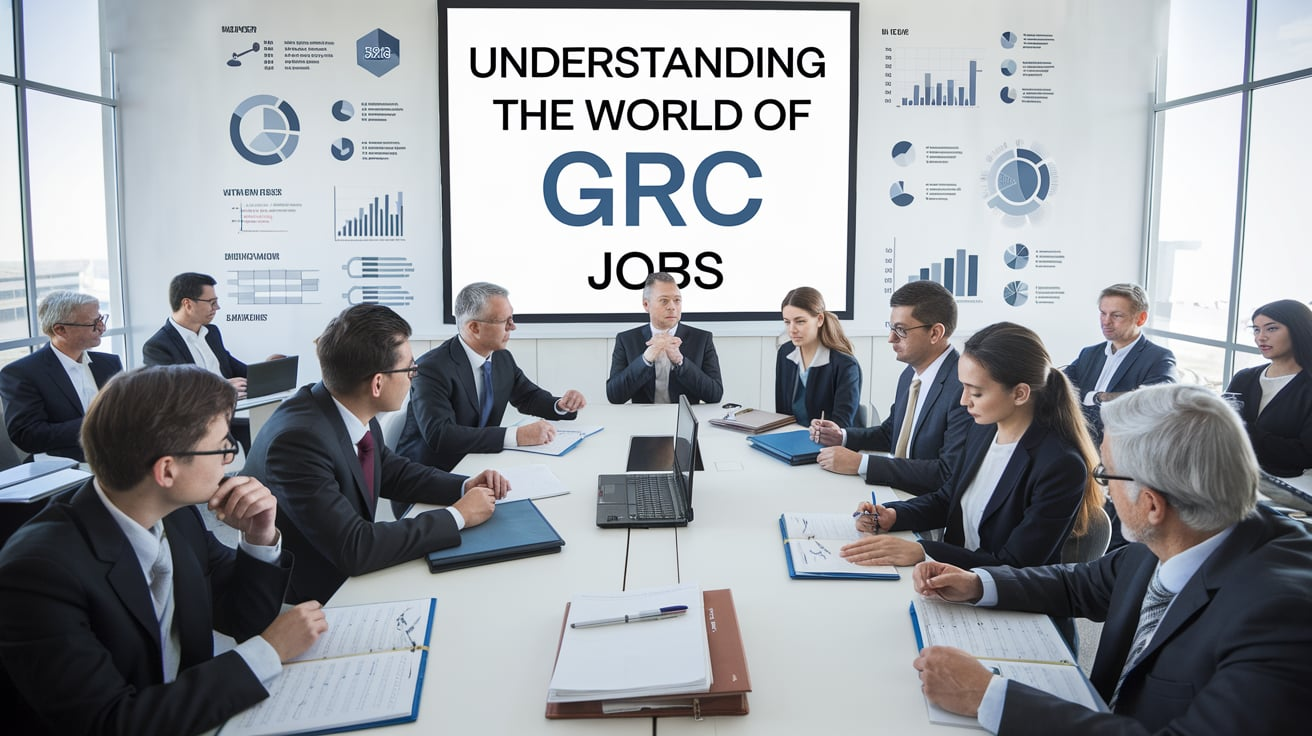Introduction:
Governance, Risk, and Compliance (GRC) is integral to modern business operations, ensuring that organizations function ethically, manage risks effectively, and adhere to regulations. As companies navigate increasingly complex regulatory landscapes, the demand for skilled professionals in GRC jobs has risen significantly. These roles are critical in safeguarding an organization’s reputation and ensuring long-term sustainability. This article delves into GRC jobs, examining their significance, responsibilities, and opportunities for career growth.
What Are GRC Jobs?
GRC jobs encompass positions that focus on governance, risk management, and compliance within organizations. Governance involves the frameworks and processes that guide organizational decision-making and accountability. Risk management focuses on identifying, assessing, and mitigating risks that could impact business objectives. Adherence to legal, regulatory, and ethical standards is guaranteed by compliance.
Professionals in GRC jobs are responsible for creating and implementing policies that align with these three pillars. They play a crucial role in fostering a culture of transparency, accountability, and ethical behavior, which is essential for building stakeholder trust.
The Growing Demand for GRC Professionals
The demand for GRC jobs has surged in recent years due to several factors. The increasing complexity of regulatory requirements across industries has made compliance more challenging. For instance, regulations like the General Data Protection Regulation (GDPR) in Europe and the Sarbanes-Oxley Act in the United States require organizations to establish robust compliance frameworks.
Additionally, the rise of cybersecurity threats has underscored the need for effective risk management. GRC professionals are often at the forefront of developing strategies to protect sensitive data and mitigate cyber risks. As businesses become more globalized, they face the challenge of navigating diverse regulatory environments, further fueling the demand for skilled individuals in GRC jobs.
Key Responsibilities in GRC Jobs
GRC jobs involve many responsibilities, varying depending on the organization and industry. However, some everyday duties include:
- Developing Governance Policies: Professionals in GRC jobs design governance frameworks that outline roles, responsibilities, and decision-making processes within the organization.
- Risk Assessment and Mitigation: GRC professionals identify potential risks, evaluate their impact, and implement measures to mitigate them. This includes financial and non-financial risks, such as reputational and operational risks.
- Regulatory Compliance: Ensuring adherence to local, national, and international regulations is a core aspect of GRC jobs. This involves staying updated on changes in laws and standards and adjusting policies accordingly.
- Internal Auditing: Many GRC roles require internal audits to assess the effectiveness of governance, risk management, and compliance practices.
- Training and Awareness: GRC professionals often lead initiatives to educate employees about compliance requirements and ethical practices, fostering a culture of integrity.
Industries Offering GRC Jobs
GRC jobs are prevalent across various industries, reflecting the universal need for governance, risk management, and compliance.
- Financial Services: Banks, insurance companies, and investment firms require robust GRC frameworks to comply with regulations and manage risks effectively.
- Healthcare: The healthcare sector relies on GRC professionals to ensure compliance with laws like HIPAA in the U.S., which governs the protection of patient data.
- Technology: In the tech industry, GRC jobs focus on data privacy, cybersecurity, and intellectual property protection.
- Manufacturing and Supply Chain: GRC professionals in this sector address compliance with environmental regulations and ensure ethical sourcing practices.
- Energy and Utilities: GRC’s roles in this field involve managing risks related to safety, environmental impact, and regulatory compliance.
Skills and Qualifications for GRC Jobs
To excel in GRC jobs, professionals need technical expertise and soft skills. Essential qualifications and abilities include:
- Analytical Skills: Analyzing data, identifying patterns, and drawing insights are crucial for risk assessment and compliance monitoring.
- Attention to Detail: Given the complexity of regulations, GRC professionals must be meticulous in their work to ensure accuracy and compliance.
- Communication Skills: Explaining policies and regulations to employees and stakeholders requires clear and effective communication.
- Regulatory Knowledge: A deep understanding of industry-specific regulations is essential for success in GRC jobs.
- Certifications: Professional certifications like Certified Risk Manager (CRM), Certified Compliance & Ethics Professional (CCEP), and Certified Information Systems Auditor (CISA) can enhance career prospects in GRC.
Career Opportunities in GRC Jobs
The field of GRC offers diverse career paths and opportunities for growth. Entry-level roles often include compliance analysts or risk management associates, where professionals gain hands-on experience implementing policies and procedures.
As professionals advance in their careers, they may move into roles like GRC manager or director, overseeing entire governance, risk, and compliance programs. Senior positions, such as Chief Risk Officer (CRO) or Chief Compliance Officer (CCO), involve strategic decision-making and leadership responsibilities.
The demand for GRC jobs also provides opportunities for specialization. For instance, professionals can focus on areas like IT governance, regulatory compliance, or operational risk management.
The Future of GRC Jobs
The landscape of GRC jobs is evolving, driven by technological advancements and changing regulatory environments. Automation and artificial intelligence are transforming organizations’ management of governance, risk, and compliance. Tools like predictive analytics and machine learning enable GRC professionals to identify risks more effectively and streamline compliance processes.
Additionally, the growing emphasis on environmental, social, and governance (ESG) factors is expanding the scope of GRC jobs. Organizations are increasingly incorporating ESG considerations into their risk management frameworks, creating new opportunities for professionals with sustainability and social responsibility expertise.
Conclusion
GRC jobs play a vital role in ensuring the stability and integrity of organizations in an ever-changing business environment. Professionals in these roles help organizations navigate complexities, safeguard their reputations, and achieve long-term success by addressing governance, risk, and compliance challenges.
As industries evolve and regulatory requirements grow more stringent, the demand for skilled individuals in GRC jobs will only increase. For those with a passion for problem-solving, a commitment to ethical practices, and a desire to make a meaningful impact, a career in GRC offers immense opportunities and rewards. With its blend of analytical rigor, strategic thinking, and societal relevance, the field of GRC is poised to remain at the forefront of modern business operations.

